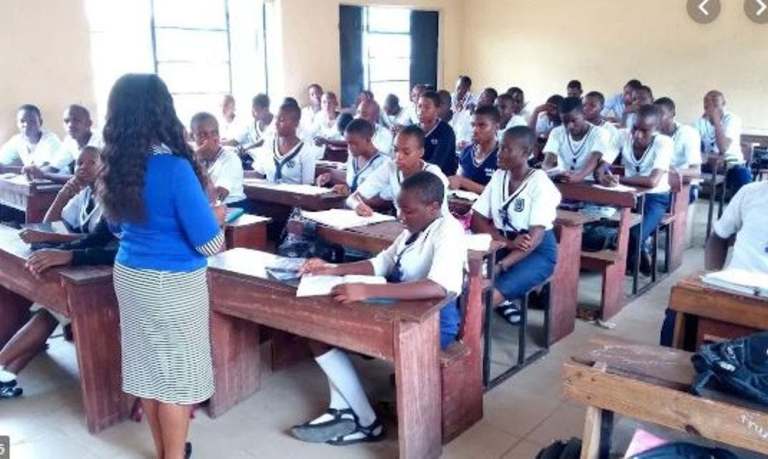Features
Complete Primary & Secondary School Subjects offered in Nigeria (WAEC)

The current and vital information in this article is for Parents, Teachers, Schools, and Students who are interested in knowing the subjects taught and scheme of work for Nigerian Nursery, Primary and Secondary Schools.
Please note that these subjects may vary for each primary and secondary school across Nigeria. However, all the subjects listed here are the basic subjects common to all the Nursery, Primary and Secondary schools.
For clarity, the scheme of work is a guideline of content to be taught and the structure of classroom learning and activities for effective teaching.
Scheme of work for nursery school in Nigeria
Below are the examples of a standard curriculum for elementary schools in Nigeria.
There are 3 divisions in the nursery school, which are:
- Crèche (age 6 weeks old)
- Playgroup or Toddler (age 18 months)
- Pre-school / Kindergarten (ages 3 – 5)
The subjects for the nursery section includes:
- Number work
- Letter work (Phonic method)
- Social habit
- Health habit
- Scientific and Reflective thinking
- Writing/Patterns
- Bible knowledge
- Creative Arts
- Rhymes/Songs
- Computer
- Physical exercise
- Story telling
Nigerian subjects for primary schools
The list in the primary section are:
- English Language – English Primary 1 – English Primary 2
- Verbal Reasoning
- Spelling
- Mathematics – Math Primary 1 – Math Primary 2 – Math Primary 3
- Quantitative Reasoning
- Elementary Science – Basic science primary 1
- Social Studies
- Vocational Aptitude
- Health Education
- Bible Knowledge
- Languages
- Creative Arts
- Computer
- Agric Science
- Home Economics
- Civic
- Music
- Moral Instruction
- Handwriting
From the above subjects, quantitative reasoning, verbal reasoning, Mathematics, and English language are very important for Primary 5 pupils.
The reason is that it is on those four subjects they will be examined (common entrance exam) before they can be offered admission into any secondary school in Nigeria.
List of Secondary School Subjects In Nigeria [By WAEC]
The National Curriculum sets out which subjects secondary school pupils are taught. There are 3 ‘core’ subjects that must be taught in both Key Stage 3 and Key Stage 4 – maths, science and English. Additionally, we provide you with all the subjects as approved by the West African Examination Council (WAEC) below.
Furthermore, some of the subjects will be grouped into Science subjects and Art subjects. This information will help the parents, guardians, and students on what subject to take up for their desire field of study.
List of Junior Secondary School (JSS) Subjects
Junior Secondary School (JSS) At this level, there is a wide range of subjects to broaden the knowledge and skills of students. Every student offers the following core subjects:
- Mathematics
- English Language
- A Nigerian Language (Yoruba)
- Basic Science
- Social Studies
- Fine Arts/Creative Art
- Agricultural Science
- Civic Education
- Christian Religion Studies
- Physical and Health Education
- Business Studies
- French
- Computer Studies
- Home Economics
- Music
- Basic Technology
List of Secondary School Subjects
- ARABIC
- AGRICULTURAL SCIENCE
- AUTO PARTS MERCHANDISING
- AUTO MECHANICS
- AUTO MECHANICAL WORK
- AUTO ELECTRICAL WORK
- AUTO BODY REPAIRS AND SPRAY PAINTING
- APPLIED ELECTRICITY OR BASIC ELECTRICITY
- ANIMAL HUSBANDRY
- BUSINESS MANAGEMENT
- BUILDING CONSTRUCTION
- BOOK KEEPING
- BLOCKLAYING, BRICKLAYING AND CONCRETING
- BIOLOGY
- BASKETRY
- CROP HUSBANDRY AND HORTICULTURE
- COSMETOLOGY
- COMPUTER STUDIES
- COMMERCE
- CLOTHING AND TEXTILES
- CLERICAL OFFICE DUTIES
- CIVIC EDUCATION
- CHRISTIAN RELIGIOUS STUDIES
- CHEMISTRY
- CERAMICS
- CATERING CRAFT PRACTICE
- CAPENTRY AND JOINERY
- DYEING & BLEACHING
- DATA PROCESSING
- ENGLISH LANGUAGE
- ELECTRONICS OR BASIC ELECTRONICS
- ELECTRICAL INSTALLATION AND MAINTENANCE
- EFIK
- EDO
- ECONOMICS
- FURTHER MATHEMATICS
- FURNITURE MAKING
- FRENCH
- FORESTRY
- FOODS AND NUTRITION
- FISHERIES
- FINANCIAL ACCOUNTING
- TYPEWRITING
- TOURISM
- TEXTILES
- TECHNICAL DRAWING
- STORE MANAGEMENT
- STORE KEEPING WAEC
- SOCIAL STUDIES
- SHORTHAND
- SCULPTURE
- SALESMANSHIP
- REFRIGERATION AND AIR CONDITIONING
- RADIO,TELEVISION AND ELECTRONICS WORKS
- PRINTING CRAFT PRACTICE
- PRINCIPLES OF COST ACCOUNTING
- PLUMBING AND PIPE FITTING
- PICTURE MAKING
- PHYSICS
- PHYSICAL EDUCATION
- PHOTOGRAPHY
- PAINTING AND DECORATING
- OFFICE PRACTICE
- MUSIC
- MINING
- METALWORK
- MARKETING
- MACHINE WOODWORKING
- LITERATURE IN ENGLISH
- LEATHERWORK
- LEATHER GOODS
- JEWELLERY
- ISLAMIC RELIGIOUS STUDIES
- INTEGRATED SCIENCE
- INSURANCE
- INFORMATION AND COMMUNICATION TECHNOLOGY
- IGBO
- IBIBIO
- HOME MANAGEMENT
- HISTORY
- HEALTH EDUCATION OR HEALTH SCIENCE
- HAUSA
- GSM PHONES MAINTENANCE AND REPAIRS
- GRAPHIC DESIGN
- GOVERNMENT
- GHANAIAN LANGUAGES
- GEOGRAPHY
- GENERAL MATHEMATICS OR MATHEMATICS
- GENERAL KNOWLEDGE IN ART
- GENERAL AGRICULTURE
- GARMENT MAKING
- VISUAL ART
- UPHOLSTERY
- WOODWORK
- WEST AFRICAN TRADITIONAL RELIGION
- WELDING AND FABRICATION ENGINEERING CRAFT PRACTICE
- YORUBA
List of Science Subjects in Secondary School
- Mathematics
- English Language
- Physics
- Chemistry
- Biology
- Agricultural Science
- Civic Education
- Further Mathematics
- Technical Drawing
- Economics
List of Art Subjects in Secondary School
- English
- Mathematics
- Literature in English
- Government
- History
- Commerce
- Christian Religious Studies or Islamic Religious Studies
- Arabic
- Civic Education
- Biology/Agricultural Science
- Yoruba or Igbo or Hausa







